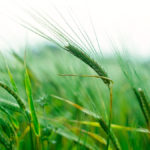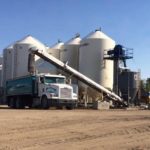There are many ways to increase your chances of crop loss. Here are nine.



Crops hit yield and quality expectations, and bring an easier harvest

Save money, increase profits by getting billions of little creatures working for you


Q & A with Nutrien Ag Solutions


Q & A with Nutrien Ag Solutions


Practical Research: Was it disease? Too much nitrogen? Or was it a copper deficiency in your soil?
